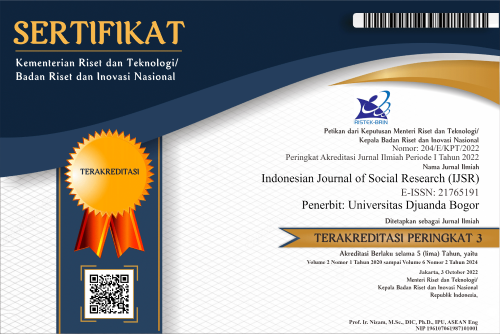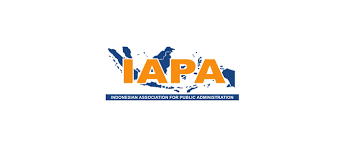Teacher Educator Professionalism and Student Teacher Learning in Nigerian Universities
Abstract
Of the three components constituting teacher education curriculum, namely general education, specialized education and professional education, the professional education component is arguably accorded the highest consideration in the scholarship of teaching. However, there is an emerging concern over the involvement of non-education specialists in the teaching of this component. Yet, there is little evidence of sufficient engagement with this concern in the Nigerian context. As a sequel to a study on pedagogical misconceptions by student teachers, this paper examines the impact of teacher educators' professionalism on student teachers' learning in Nigerian universities. Through the analytic method, the study engaged with data collected through the instrumentality of official records like Faculty brochures, lecture notes developed by teacher educators, systematic observations by the researchers, and semi-structured interviews involving selected participants. The qualitative study employs a constructivist paradigm that methodically situates data and analysis in the context of the experiences and perceptions of both the participants and researchers, and focusses on the main theme, namely teacher educator's knowledge as a predictor of student-teacher learning, which emerged from the data for the earlier study as collected in three universities where the present lead researcher assessed prospective teachers on teaching practice in their third and fourth years, in his capacity as teaching practice supervisor. In exposing the effect of teacher educator professionalism on prospective teacher learning, the present study revealed instances of miseducation by some of the teacher educators involved in teaching professional education courses, which substantially accounts for the student teachers' pedagogical misconceptions
References
Adams, J. (2009). A Critical Analysis of Demonstration Method of Teaching. Unpublished Master Thesis. University of Maiduguri.
Adzape, J., & Akpoghol, T. (2015). Correcting Students’ Chemical Misconceptions based on Two Conceptual change strategies and their effect on their achievement. IOSR Journal of Research & Method in Etion (IOSRME), 5(6), 58–65.
Aglazor, G. (2017). The role of teaching practice in teacher education, especially regarding,aboutework for best practice. Global Journal of Educational Research, 16(2), 101–110.
Andrew, V. A. (2012). Using Learning Study to improve the teaching and learning of accounting in a school in Brunei Darussalam. International Journal for Lesson and Learning Studies.
Apple, M. W. (1982). Apple, Michael W., Education and Power. Boston: Routledge and Kegan Paul, 1982.
Appleberry, M. (1976). What Did You Learn from Student Teaching? Instructor, 85(6), 38–40.
Avalos, B. (2011). Teacher professional development in teaching and teacher education over ten years. Teaching and Teacher Education, 27(1), 10–20.
Ay, Y. (2017). A review of research on the misconceptions in mathematics education. Education Research Highlights in Mathematics, Science and Technology, 2017, 21–31.
Beck, C., & Kosnik, C. (2002). Components of a good practicum placement: Student teacher perceptions. Teacher Education Quarterly, 29(2), 81–98.
Castle, S., Fox, R. K., & Souder, K. O. (2006). Do professional development schools (PDSs) make a difference? A comparative study of PDS and non-PDS teacher candidates. Journal of Teacher Education, 57(1), 65–80.
Chan, C., & Bray, M. (2014). Marketized private tutoring as a supplement to regular schooling: Liberal Studies and the shadow sector in Hong Kong secondary education. Journal of Curriculum Studies, 46(3), 361–388.
Cheng, M. M., Cheng, A. Y., & Tang, S. Y. (2010). Closing the gap between the theory and practice of teaching: Implications for teacher education programmes in Hong Kong. Journal of Education for Teaching, 36(1), 91–104.
Clarke, D., & Hollingsworth, H. (2002). Elaborating a model of teacher professional growth. Teaching and Teacher Education, 18(8), 947–967.
COŞKUN, A. (2013). Stress in English language teaching practicum: The views of all stakeholders. Hacettepe Üniversitesi Eğitim Fakültesi Dergisi, 28(28–3), 97–110.
Creasy, K. L. (2015). Defining Professionalism in Teacher Education Programs. Online Submission, 2(2), 23–25.
Dunkin, M. J., & Biddle, B. J. (1974). The study of teaching. Holt, Rinehart & Winston.
Eisner, E. W. (2017). The enlightened eye: Qualitative inquiry and the enhancement of educational practice. Teachers College Press.
Erbacher, T. A., & Poland, S. (2019). School psychologists must be involved in planning and conducting active shooter drills. Communique, 48(1), 10.
Good, T. (2008). In the midst of comprehensive school reform: Principals’ perspectives. Teachers College Record, 110(11), 2341–2360.
Gooding, J., & Metz, B. (2011). From misconceptions to conceptual change. The Science Teacher, 78(4), 34.
Goodnough, K., Osmond, P., Dibbon, D., Glassman, M., & Stevens, K. (2009). Exploring a triad model of student teaching: Pre-service teacher and cooperating teacher perceptions. Teaching and Teacher Education, 25(2), 285–296.
Grimes, P. (2013). Considering the continuing development of inclusive teachers: A case study from Bangkok, Thailand. European Journal of Special Needs Education, 28(2), 187–202. https://doi.org/10.1080/08856257.2013.778112
Guyton, E. (1986). Incentives for working with student teachers. summer workshop of the Association of Teacher Educators, Flaystaff, Az.
Guyton, E. (1987). Working with student teachers: Incentives, problems, and advantages. Professional Educator, 10(1), 21–28.
Guyton, E., & McIntyre, D. J. (1990). Student teaching and school experiences. Handbook of Research on Teacher Education, 1, 514–534.
Hascher*, T., Cocard, Y., & Moser, P. (2004). Forget about theory—Practice is all? Student teachers’ learning in practicum. Teachers and Teaching, 10(6), 623–637.
Holloway, J. H. (2001). The benefits of mentoring. Educational Leadership, 58(8), 85–86.
Kiggundu, E. (2007). Teaching practice in the Greater Vaal Triangle Area: The student teachers experience. Journal of College Teaching & Learning (TLC), 4(6).
Killian, J. E., & McIntyre, D. J. (1986). Quality in the early field experiences: A product of grade level and cooperating teachers training. Teaching and Teacher Education, 2(4), 367–376.
Killian, J. E., & McIntyre, D. J. (1988). Grade level as a factor in participation during early field experiences. Journal of Teacher Education, 39(2), 36–41.
Kirk, D. (1986). Beyond the limits of theoretical discourse in teacher education: Towards a critical pedagogy. Teaching and Teacher Education, 2(2), 155–167.
Köse, S. (2008). Diagnosing student misconceptions: Using drawings as a research method. World Applied Sciences Journal, 3(2), 283–293.
Kosterek (2016). Philosophy for Children. Albany, NY: SUNY Press.
Lincoln, Y. S., & Guba, E. G. (1985). Naturalistic inquiry. Sage.
Maphosa, C., Shumba, J., & Shumba, A. (2007). Mentorship for students on teaching practice in Zimbabwe: Are student teachers getting a raw deal? South African Journal of Higher Education, 21(2), 296–307.
Marais, P., & Meier, C. (2004). Hear our voices: Student teachers’ experiences during practical teaching.
Massey, D., & Riley, L. (2013). Reading math textbooks: An algebra teacher’s patterns of thinking. Journal of Adolescent & Adult Literacy, 56(7), 577–586.
Mishra, L., Gupta, T., & Shree, A. (2020). Online teaching-learning in higher education during lockdown period of COVID-19 pandemic. International Journal of Educational Research Open, 1, 100012.
Mustami, M. (2016). Identifying the Misconception in Students’ Biology Department on Genetics Concept with CRI Method. The Social Sciences, 11(13), 3348–3351.
Ngidi, D. P., & Sibaya, P. T. (2003). Student teacher anxieties related to practice teaching. South African Journal of Education, 23(1), 18–22.
Nguyen, H. T. M., & Baldauf Jr, R. B. (2010). Effective peer mentoring for EFL pre-service teachers’ instructional practicum practice. Asian EFL Journal, 12(3), 40–61.
Ojose, B. (2015). Students’ misconceptions in mathematics: Analysis of remedies and what research says.
Orland-Barak, L., & Yinon, H. (2007). When theory meets practice: What student teachers learn from guided reflection on their own classroom discourse. Teaching and Teacher Education, 23(6), 957–969.
Paker, T. (2011). Student teacher anxiety related to the teaching practicum.
Park, S., & Oliver, J. S. (2008). Revisiting the conceptualization of pedagogical content knowledge (PCK): PCK as a conceptual tool to understand teachers as professionals. Research in Science Education, 38(3), 261–284.
Phillips, D. C. (1980). What do the researcher and the practitioner have to offer each other? Educational Researcher, 9(11), 17–24.
Popkewitz, T. S. (1980). Paradigms in educational science: Different meanings and purpose to theory. Journal of Education, 28–46.
Rozenszajn, R., & Yarden, A. (2014a). Expansion of biology teachers’ pedagogical content knowledge (PCK) during a long-term professional development program. Research in Science Education, 44(1), 189–213.
Rozenszajn, R., & Yarden, A. (2014b). Expansion of biology teachers’ pedagogical content knowledge (PCK) during a long-term professional development program. Research in Science Education, 44(1), 189–213.
Rufai, S.A. (2010a), Designing a Unified Teacher Education Curriculum for the Contemporary Muslim World, International Journal of Muslim Unity, 6 (1), 49-56.
Rufai, S.A. (2010b), An Islamic-Based Evaluation of Dominant Western Models of Teacher Education, Islamic Perspective Journal, 2 (2), 148-186.
Rufai, S.A. (2010c), Educational Excellence and Learner Diversity: Can the Teacher Achieve Excellence in all Students? Malaysian Journal of Education, 35 (2),71-76.
Rufai, S.A. (2011), A Review of Manual for Teachers of Islamic Studies by Prof. Murtala Bidmos, Journal of Humanities and Social Sciences, 7 (1), 77-86, 2012.
Rufai, S.A. (2012), Proposing an Islamic-Based Alternative to Dominant Western and Dominant Islamic Models of Teacher Education, Asean Journal of Teaching and Learning in Higher Education (AJTLHE), 4 (1) 44-60.
Schrag, F. (1981). Knowing and doing. American Journal of Education, 89(3), 253–282.
Seferoğlu, G. (2006). Teacher candidates’ reflections on some components of a pre‐service English teacher education programme in Turkey. Journal of Education for Teaching, 32(4), 369–378.
Shulman, L. (1987a). Knowledge and teaching: Foundations of the new reform. Harvard Educational Review, 57(1), 1–23.
Shulman, L. (1987b). Knowledge and teaching: Foundations of the new reform. Harvard Educational Review, 57(1), 1–23.
Suparno, P. (2005). Miskonsepsi & Perubahan Konsep fifika (English Translation). Jakarta:
Grasindo.
Suprapto, N., Nandyansah, W., & Mubarok, H. (2020). An Evaluation of the “PicsAR” Research Project: An Augmented Reality in Physics Learning. International Journal of Emerging Technologies in Learning (IJET), 15(10), 113–125.
Suprapto, S., Malik, A. A., & Yuriatson, Y. (2019). Relationship of Motivation to Be a Nurse with Learning Achievement. Jurnal Ilmiah Kesehatan Sandi Husada, 8(2), 39–43.
Taylor, G. R., & MacKenney, L. (2008). Improving human learning in the classroom: Theories and teaching practices. R&L Education.
Tom, Alan R and Valli, & Linda. (1990). Professional knowledge for teachers.
Vescio, V., Ross, D., & Adams, A. (2008). A review of research on the impact of professional learning communities on teaching practice and student learning. Teaching and Teacher Education, 24(1), 80–91.
Vescio, Vicki and Ross, Dorene and Adams, & Alyson. (n.d.). A review of research on the impact of professional learning communities on teaching practice and student learnin. Teaching and Teacher Education, 24(1), 80–91.
Wiley, C., Good, T., & McCaslin, M. (2008). Comprehensive school reform instructional practices throughout a school year: The role of subject matter, grade level, and time of year. Teachers College Record, 110(11), 2361–2388.
Copyright (c) 2021 Indonesian Journal of Social Research (IJSR)

This work is licensed under a Creative Commons Attribution-ShareAlike 4.0 International License.
The Authors submitting a manuscript do so on the understanding that if accepted for publication, copyright publishing of the article shall be assigned/transferred to Indonesian Journal of Social Research (IJSR) Universitas Djuanda as Publisher of the journal. Upon acceptance of an article, authors will be asked to complete a 'Copyright Transfer Agreement'. An e-mail will be sent to the corresponding author confirming receipt of the manuscript together with a 'Copyright Transfer Agreement' form by online version of this agreement.
Indonesian Journal of Social Research (IJSR) Universitas Djuanda, the Editors and the Editorial Board make every effort to ensure that no wrong or misleading data, opinions or statements be published in the journal. In any way, the contents of the articles and advertisements published in the Indonesian Journal of Social Research (IJSR) Universitas Djuanda are sole and exclusive responsibility of their respective authors and advertisers.
Remember, even though we ask for a transfer of copyright, our journal authors retain (or are granted back) significant scholarly rights as mention before.
The Copyright Transfer Agreement (CTA) Form can be downloaded here: Copyright Transfer Agreement-IJSR 2020
The copyright form should be signed electronically and send to the Editorial Office e-mail below:
Dr. Rasmitadila, M.Pd (Editor-in-Chief)
Universitas Djuanda
Jl. Tol Jagorawi No.1, Ciawi, Kec. Ciawi, Bogor, Jawa Barat 16720
Website: http://journal.unida.ac.id/index.php/IJSR/index
Email: ijsr@unida.ac.id





4.png)



